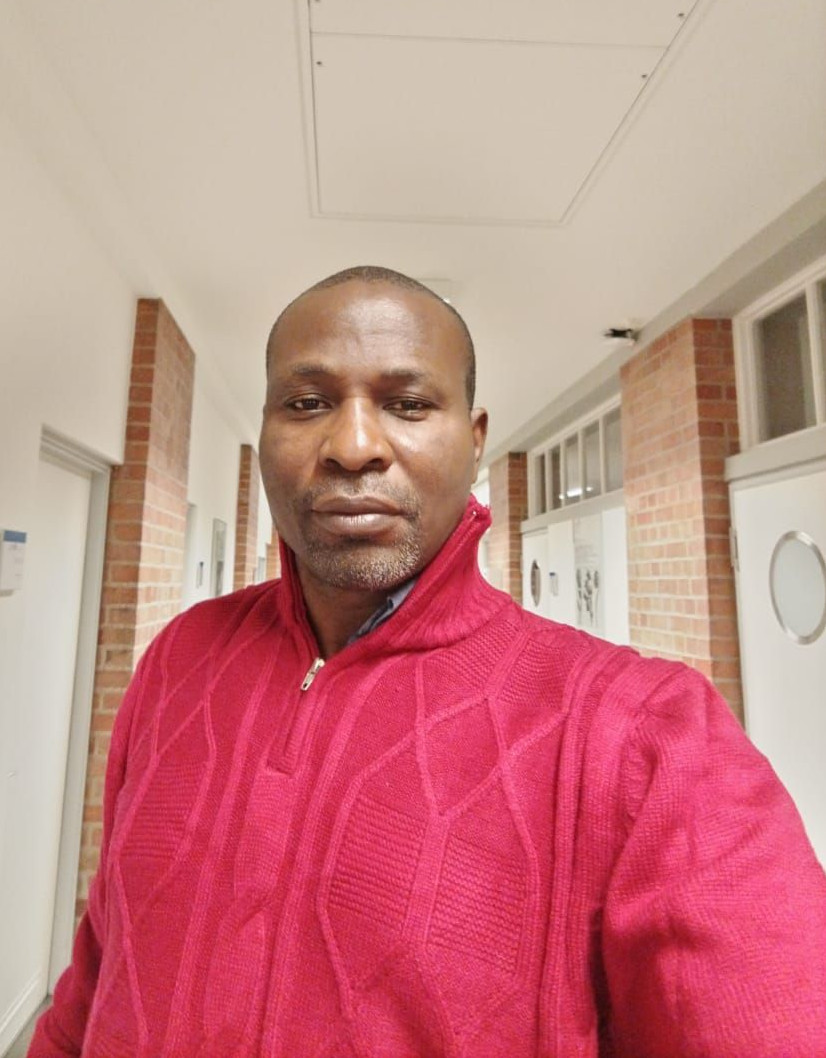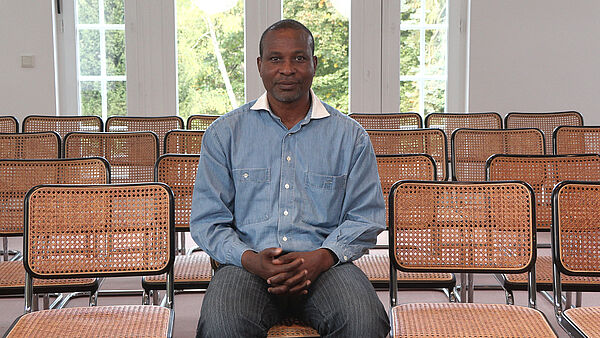
Basile Ndjio, PhD
Professor of Anthropology
University of Douala
Born in 1968 in Douala, Cameroon
PhD in Sociocultural Anthropology from the University of Amsterdam
Project
Inhospitable Medicine: Homosexuality, Medical Discrimination, and the Precarious Life in Cameroon
In general, this ethnographically grounded research addresses the problem of medical discrimination based on stereotyped sexual and gender identity, which is a central problem in the public health system in Cameroon. It places emphasis on the moralizing rhetoric as well as the stigmatising attitude many healthcare providers are increasingly adopting towards LGBTIQ patients. The research aims to shed light on the complex ways in which the country’s medical order has been dealing with patients with non-conforming sexual and gender identities since the country’s enactment of anti-homosexual legislation in 1965. Specifically, it aspires to produce ethnographic data on the changing situation of LGBTIQ people in public medical institutions in Cameroon: initially as “invisible patients” whose sexual identity was ignored, and since 2006 as radical “sexual others” whose access to healthcare is increasingly denied. The research will also examine the various (ideological, cultural, and political) justifications for the current alienation or “othering” of some LGBTIQ patients in the country’s medical institutions.It will be therefore demonstrated that the growing stigmatization of suspected or self-identified homosexual people in numerous public healthcare centres in Cameroon coincides with a particular moment when the country’s medical order increasingly regards homosexuality as a major medical and social issue. Moreover, the research contends that the politics of blame and guilt plays a crucial role in the stereotypical view of LGBTIQ patients, as well as in the discriminatory care many encounter in a number of the country’s medical institutions. In this regard, the case study of a few homosexual patients will show how the country’s medical system increasingly moralizes its medical practices and discourses, and at times does not hesitate to saturate the medical personnel with these ethics.
Recommended Reading
Ndjio, Basile (2016). “Nation and its Undesirable Subjects: Homosexuals and Alien ‘Others’ in Cameroon.” In The Culturalization of Citizenship: Belonging and Polarization in a Globalizing World, edited by Jan Willem Duyvendak, Peter Geschiere, and Evelien Tonkens, 115–136. London: Palgrave Macmillan.
– (2020). “Death without Mourning: Homosexuality, Homo Sacer, and Bearable Loss in Central Africa.” Africa 90 (5): 852–869. https://doi.org/10.1017/S0001972020000613.
– (2023). “Coronavirus, Imagined Location, and Disenchanted Home in Africa.” Diaspora: A Journal of Transnational Studies 23 (1): 92–110. https://doi.org/10.3138/diaspora.23.1.2023.02.14.
Colloquium, 17.06.2025
Same-sex sexuality in Cameroon: Complex history, dynamic knowledge production, and ambivalent epistemologies
In Africa at large, there is an exuberant production of knowledge regarding same-sex sexuality, marked by its complexity, as it is intricately connected to Western colonial legacies, religious influences, postcolonial States’ anti-homosexual policies, and international human rights discourses. Due to the intricate politicization of homosexuality in Cameroon (Ndjio 2012, 2013, and 2016), this Central African country offers a compelling case study of the dynamic production of knowledge regarding same-sex sexuality.
Despite the burgeoning scholarly literature on same-sex sexuality in Cameroon, limited attention has been devoted to the evolution of knowledge systems pertaining to same-sex sexuality; a topic that remains understudied in the historiography of knowledge in Africa, and particularly in African queer studies.
Built upon my previous inquiry into the history of sexuality in postcolonial Africa (see Ndjio 2012 and 2013), this presentation seeks to fill the identified epistemological gap by providing a historically grounded research that contests the dominant presentist viewpoint in contemporary studies on African queer issues.
More generally, this research analyses the historical development of queer epistemologies in Cameroon. The paper particularly highlights the dynamism of discourses and orders of “truths” surrounding homosexuality, as well as the complexity in the management of non-conventional sexual and gender identities in this country. The analysis will focus on three key actors or institutions whose actions have significantly shaped the development of knowledge systems concerning same-sex sexuality in Cameroon: the colonial missionary and administrative order, the postcolonial Cameroonian state, and international human rights organizations. They are also linked to three specific periods: the colonial period, the early postcolonial phase, and the contemporary era.
This study illustrates through multimodal research methods the involvement of various local and international actors in the intricate production of knowledge regarding homosexuality in Cameroon since the 19th century, highlighting how their differing understandings of non-heterosexuality have impacted the lives of individuals identified as homosexuals.
Publications from the Fellow Library
Ndjio, Basile (New York, NY, 2023)
Coronavirus, imagined location, and disenchanted home in Afrika
Ndjio, Basile (Cambridge, 2020)
Death without mourning : homosexuality, homo sacer, and bearable loss in Central Africa
